Premium Only Content
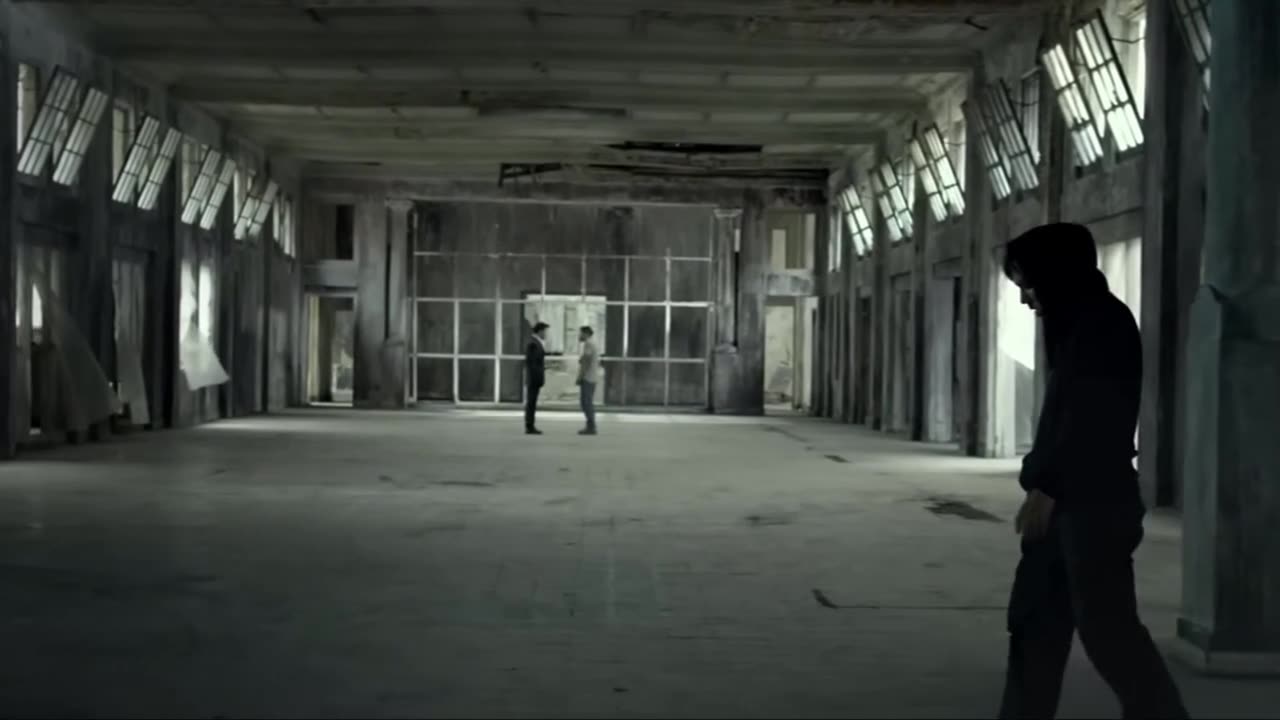
Street Fighting Man Doo Doo Doo Doo Doo (Heartbreaker) Rolling Stones
Street Fighting Man Album: Beggars Banquet (1968)
Doo Doo Doo Doo Doo (Heartbreaker) Album: Goat's Head Soup (1973)
by Rolling Stones
WARNING NSFW... THERE IS A CHICK WITH CLAW HAMMERS...
Street Fighting Man deals with civil unrest in Europe and America in 1968. There were student riots in London and Paris, and protests in America over the Vietnam War. The specific event that led Mick Jagger to write the lyric was a demonstration at Grosvenor Square in London on March 17, 1968. Jagger (along with Vanessa Redgrave), joined an estimated 25,000 protesters in condemning the Vietnam War.
The demonstrators marched to the American embassy, where the protest turned violent. Mounted police charged the crowd, which responded by throwing rocks and smoke bombs. About 200 people were taken to the hospital and another 246 arrested. Jagger didn't make it to the embassy: before the protest turned violent, he abandoned it, returning to his home in nearby Cheyne Walk. Jagger realized that his celebrity was a hindrance to the protest, as his presence distracted from the cause.
Street Fighting Man was the first Stones song to make a powerful political statement, although with an air of resignation. Jagger opens the song declaring "the time is right for fighting in the street," but goes on to sing, "But what can a poor boy do, 'cept sing in a rock and roll band."
In the US, Street Fighting Man was released as a single on August 31, 1968, just a few days after the Democratic National Convention, which took place August 26-29. The convention was marred by violence, as Chicago police clashed with protesters. When the song was released, every radio station in Chicago (and most in the rest of the country), refused to play it for fear that it would incite more violence. There was no official ban in America or Chicago, but stations knew it was in their best interest to shun the song, which accounts for its meager chart position of #48.
Mick Jagger later said: "The radio stations that banned Street Fighting Man told me that it was subversive. 'Of course it's subversive,' we said. It's stupid to think you can start a revolution with a record. I wish you could!"
Keith Richards started developing Street Fighting Man in late 1966, but had a hard time getting the sound he was after. The breakthrough came when he bought a Philips cassette recorder and realized he could get a dry, crisp sound by playing his acoustic guitar (a Gibson Hummingbird) into it, which he could then distort by playing it back through a speaker and into a studio recorder. The only electric instrument on the entire song is the bass.
The original title of Street Fighting Man was "Did Everybody Pay Their Dues?" It had completely different lyrics and therefore altogether a different and rather strange meaning, with Jagger singing about an Indian chief and his family. The music however was basically the same (slightly alternative mixes exist), but the lead guitar over the chorus was omitted on the final mix of "Street Fighting Man." Fairly listenable versions have appeared on various bootlegs.
Keith Richards created a distinctive guitar sound on this track using a technique he also used on "Jumpin' Jack Flash," where his acoustic guitar was overdubbed several times. Said Richards: "'Street Fighting Man' was all acoustics. There's no electric guitar parts in it. Even the high-end lead part was through a cassette player with no limiter. Just distortion. Just two acoustics, played right into the mike, and hit very hard. There's a sitar in the back, too. That would give the effect of the high notes on the guitar. And Charlie was playing his little 1930s drummer's practice kit. It was all sort of built into a little attaché case, so some drummer who was going to his gig on the train could open it up - with two little things about the size of small tambourines without the bells on them, and the skin was stretched over that. And he set up this little cymbal, and this little hi-hat would unfold. Charlie sat right in front of the microphone with it. I mean, this drum sound is massive. When you're recording, the size of things has got nothing to do with it. It's how you record them. Everything there was totally acoustic. The only electric instrument on there is the bass guitar, which I overdubbed afterwards. What I was after with all of those - Street Fighting Man, Jumping Jack Flash - was to get the drive and dryness of an acoustic guitar but still distort it. They were all attempts at that."
Dave Mason did session work on Street Fighting Man. He played the shelani, an Indian reed instrument, which comes in near the end of the song. Mason went on to form the group Traffic, and has played guitar on albums by Jimi Hendrix, George Harrison, Paul McCartney and Fleetwood Mac.
Mick Jagger said of Street Fighting Man: "It was a very strange time in France. But not only in France but also in America, because of the Vietnam War and these endless disruptions.... I wrote a lot of the melody and all the words, and Keith and I sat around and made this wonderful track, with Dave Mason playing the shelani on it live. It's a kind of Indian reed instrument a bit like a primitive clarinet. It comes in at the end of the tune. It has a very wailing, strange sound."
Street Fighting Man was recorded on an 8-track machine with one track devoted to the cassette recording Richards and Watts made together. Richards added more acoustic guitar on another track, Watts put some bass drum on another, and the rest were filled out by Jagger's vocal and the other instruments: Jones on sitar and tamboura, Dave Mason's shehnai, Nicky Hopkins on piano and Richards on bass because Bill Wyman wasn't around. There is a great deal of stereo separation in the mix.
In the US, the single was originally released with a picture on the sleeve of police beating protesters in Los Angeles. The music was different on this version, with different vocals and more piano. This single was quickly pulled by the record company and is now a rare collectors item.
The studio recording of Street Fighting Man, with acoustic guitars and sitar, is impossible to replicate live, but the group came up with an electric arrangement that packed plenty of punch when they performed it. The song remained a concert favorite throughout their run.
The Stones released Street Fighting Man the same month The Beatles came out with "Revolution," which was their first blatantly political song.
In the UK, Street Fighting Man wasn't released as a single until July 1971, but it still made a strong showing on the chart, reaching #21.
Notable covers are by the Ramones (1985), Rage Against The Machine (2000) and Tesla (2007).
Rod Stewart, though, was the first big name to cover "Street Fighting Man," issuing his version as a single in 1969. Stewart wrote in his Storyteller anthology: "What on earth led me to record this song I'll never know. In fact, it was actually meant to be a song by Little Richard called 'The Girl Can't Help It,' but, during the session, for no apparent reason, I started singing 'Street Fighting Man,' adding much confusion to an already bewildered band."
Mick Jagger said in 1995: "I'm not sure if it really has any resonance for the present day. I don't really like it that much. I thought it was a very good thing at the time. There was all this violence going on. I mean, they almost toppled the government in France; De Gaulle went into this complete funk, as he had in the past, and he went and sort of locked himself in his house in the country. And so the government was almost inactive. And the French riot police were amazing. Yeah, it was a direct inspiration, because by contrast, London was very quiet."
Engineer Eddie Kramer recalled to Uncut in a 2016 interview: "The beginning of Street Fighting Man? My recollection is that Jimmy Miller brought in a Wollensak - a cassette machine with one mic built in - stuck it on the floor, pressed 'Record' and the band just make a circle round it. And that was the basic track. Now, of course, Keith says it was his idea and his tape machine, but I don't remember it that way."
Keith Richards lists Street Fighting Man among his favorite Rolling Stones tracks, and feels the message rings true. "When people feel that mad about the way they're being run, you should go to the streets," he said. "America wouldn't be here if it wasn't for people going to the streets."
Doo Doo Doo Doo Doo (Heartbreaker) tells two stories, a young man shot by police in a case of mistaken identity, and a 10-year girl who dies in an alley of a drug overdose. Neither is based on a true story, but is a commentary on urban America.
Mick Jagger recalled to Uncut magazine in 2020 that he can't remember any specific inspiration. "It's the timing," he said. "New York as a violent place. America as a heavy-handed police state. We can go back 100 years and it's probably even heavier. Obviously, all that time ago it was heavy in a lot of places, heavy now and heavy before."
The horns were arranged by trumpet player Jim Price, who along with Bobby Keys on sax, provided the brass on records and tours for The Stones in the early '70s. This was the last time Price recorded with The Stones. He went on to produce other artists, including Joe Cocker.
Keith Richards played bass and shared lead guitar duties with Mick Taylor.
Billy Preston played the piano.
The Stones played this on their 1973 European tour, even though it describes events in America.
Chuck Findley played trumpet on this. Other artists he worked for include George Harrison, Quincy Jones, Diana Ross, the Carpenters, Julio Iglesias, Rod Stewart, Robert Palmer and Madonna.
The opening verse to Doo Doo Doo Doo Doo (Heartbreaker) was quoted in The Flaming Lips song "Jesus Shootin' Heroin."
-
 13:00
13:00
Psychological operations
8 days agoJason Voorhees The Knife Deathshot The Chuck Norris Experiment
49 -
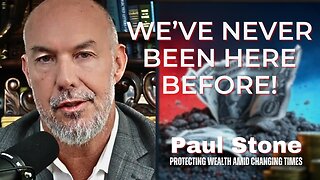 32:20
32:20
Rethinking the Dollar
3 hours agoThe U.S. Debt Crisis That Was "Made In America" w/ Paul Stone
33.4K7 -
 3:31
3:31
SLS - Street League Skateboarding
1 day agoCoco Yoshizawa’s 3rd Place Finish at SLS Tokyo 2024 | Best Tricks
34.9K5 -
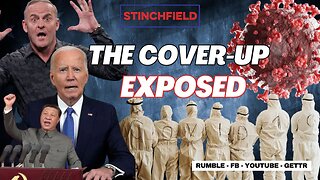 46:15
46:15
Grant Stinchfield
23 hours ago $9.98 earnedNew: The COVID Cover-up Revealed! Team Biden Caught in a Big Lie!
36.1K17 -
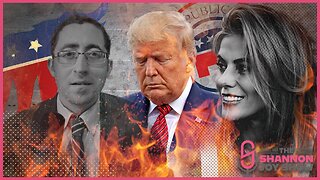 2:35:08
2:35:08
The Shannon Joy Show
18 hours ago🔥🔥LIVE Exclusive W/Daniel Horowitz - New Year 2025 Analysis On Culture, Economy & Politics🔥🔥
45.8K10 -
 33:14
33:14
Tudor Dixon
4 hours agoThe World Walk with Tom Turcich | The Tudor Dixon Podcast
30.4K -
 7:29:48
7:29:48
PudgeTV
10 hours ago🔴 Gaming on Rumble - Marvel Rivals | Iron Man's Armory: Equipping Groot and Jeff for Battle
36K3 -
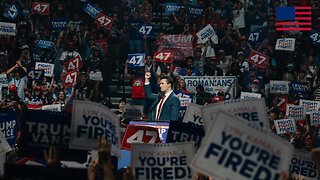 1:58:48
1:58:48
The Charlie Kirk Show
4 hours ago2024 In Review + The Truth About H-1Bs | Girdusky, Carl | 12.30.24
100K30 -
 6:51
6:51
The Rubin Report
5 hours agoDave Rubin Reacts to Trump’s Greatest Moments
43K7 -
 DVR
DVR
Bannons War Room
1 year agoWarRoom Live
102M